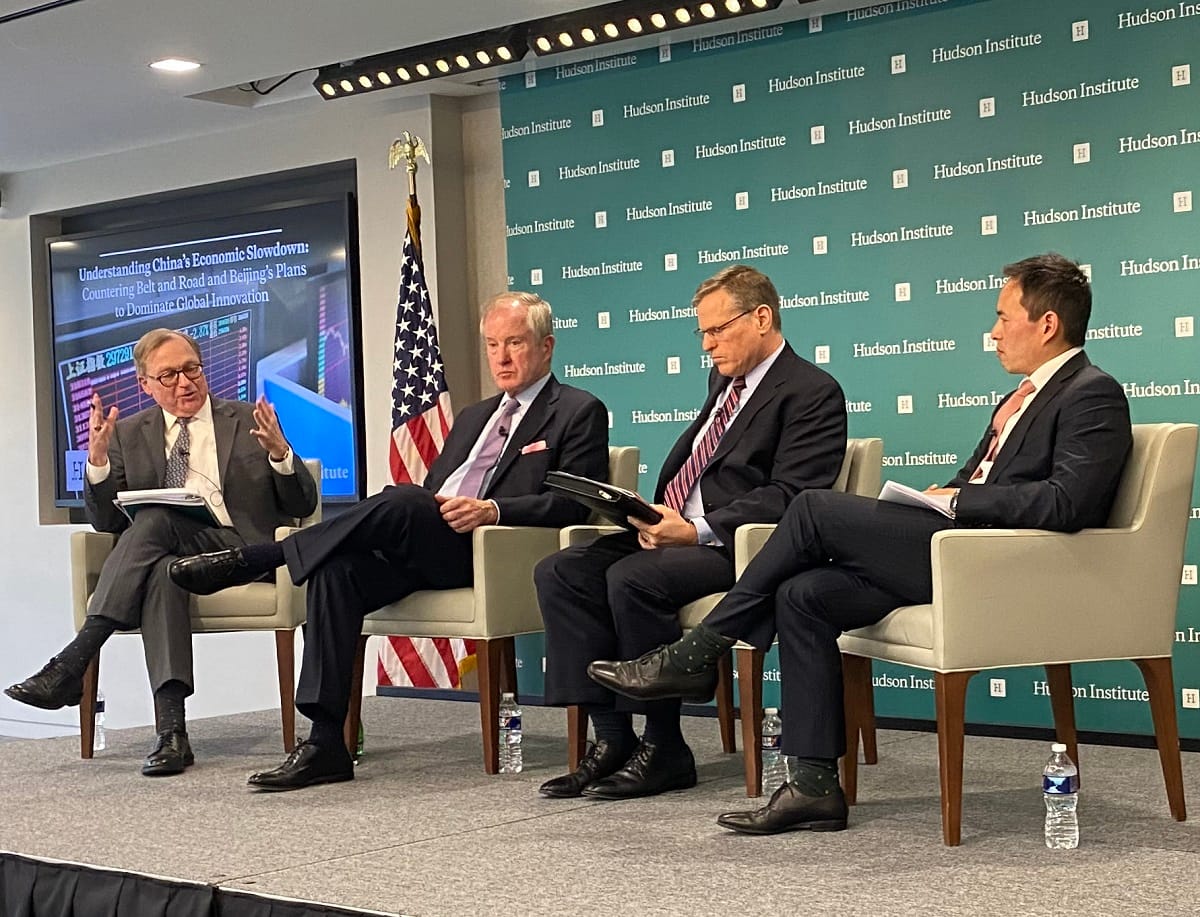Belt and Road Initiative Featured as Hudson Institute Panelists Debate China’s Economic Sustainability
WASHINGTON, February 18, 2020 – Panelist and Anthony M. Solomon Senior Fellow at the Peterson Institute Nicholas Lardy sparred with Hudson Institute Senior Fellow John Lee on Tuesday over Lee’s recently published reports on China’s economy. As opposed to China’s communist party’s past approach to un
Adrienne Patton

WASHINGTON, February 18, 2020 – Panelist and Anthony M. Solomon Senior Fellow at the Peterson Institute Nicholas Lardy sparred with Hudson Institute Senior Fellow John Lee on Tuesday over Lee’s recently published reports on China’s economy.
As opposed to China’s communist party’s past approach to underscoring “vulnerability and the challenges facing their country,” now they are “concealing rather than highlighting Chinese vulnerabilities,” suggested Lee.
Lee argues that China cannot be “the dominate power” without a sustainable, strong economy, which he believes has considerable structural flaws. “The main way Beijing has maintaining adequate growth is to support its companies with cheap credit,” said Lee.
Lardy pushed back against Lee’s portrayal of China’s economy.
Lardy said the report fell short of recognizing that “China’s efforts to slow down the growth of credit since 2017 have met with some success.”
“Debt to GDP is no longer rising” in China, said Lardy.
China’s Belt and Road Initiative “began as a scheme to export excess capacity and lock in new regional market for Chinese firms, especially those involving construction, industrial products, infrastructure, and related services,” said Lee.
According to Business Insider, the Belt and Road Initiative (which was announced in 2013) “is a massive trade and infrastructure project that aims to link China to dozens of economies across Asia, Europe, Africa, and Oceania.”
Lee deems this an “attempt to create external commercial opportunities for largely protected and unreformed Chinese firms without the need to reform the country’s economic or political institutions.” Lee sees a deep flaw in China’s economy as the leaders aim to “permanently forestall reform,” said Lee.
In response to Lee’s suggestions in his report to crack down on technology ties with China and limit visas to Chinese students studying in “sensitive areas,” Lardy disagreed. Lardy felt Lee did not acknowledge how such policies would significantly affect the U.S, perhaps more than China, said Lardy.
Lee said that for a long time the U.S. has tried to entertain the idea that there is a “cost-free strategy” to dealing with China, and that is impossible.
Panelists contend with the power of storytelling, especially for a communist regime
Lee pointed out four narratives that “play into the hands of the communist party.”
First, Lee said, “Xi Jinping and the communist party begin from a position of unprecedented strength and national resilience.” However, Lee believes that Jinping is pursuing a risky approach to economic growth and obscuring weaknesses.
Second, “there is a unique economic and governance competence that you have to attribute to the Chinese communist party compared to what we see as the chaos and disfunction of liberal democracy, such as the United States.” But Lee believes that China is reluctant to face grave issues or learn from the past.
Third, the narrative that “China does not need the United States or other advanced economies to achieve its objectives.” However, Lee believes that China cannot attain economic goals without the U.S. and other advanced countries.
Forth, “the United States and other countries have very little ability to influence domestic Chinese politics, especially when it comes to challenging Xi’s authority.” Nevertheless, Lee proposed the idea that there is “internal angst” due to Xi’s approach, and “China is deterrable,” said Lee.
In regards to the Coronavirus, panelists agreed that the outbreak exposed the discomfort that many have with accepting Chinese data and trusting the government. They agreed that China’s focus was on stemming the flow of information and controlling the narrative, rather than openly exposing the issue.








Member discussion